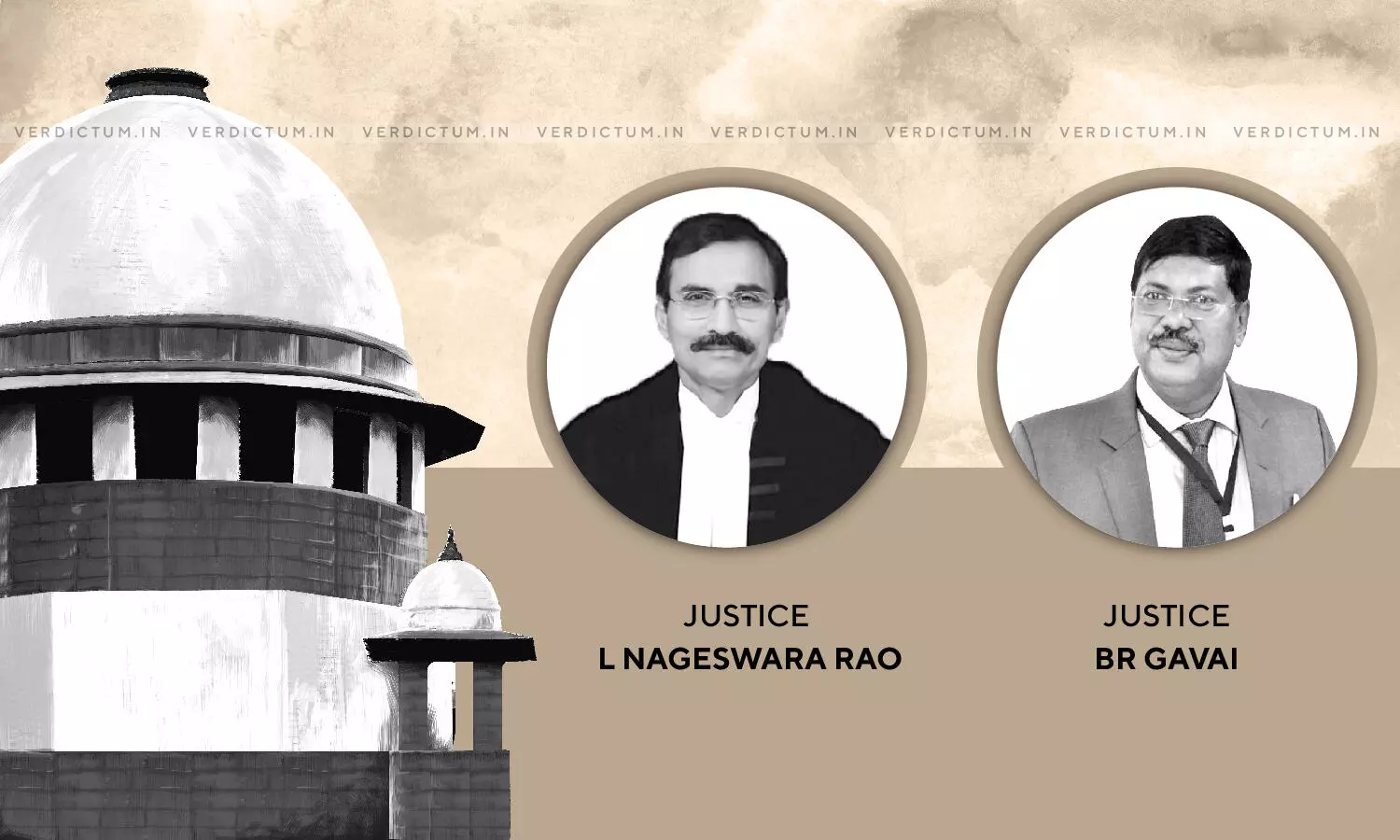
Sections 30(2) And 61(3) Of IBC - Commercial Wisdom of CoC Is Not Justiciable Except When There Is Material Irregularity - Supreme Court
 |
|The Supreme Court in its judgment rendered on 19th December held that the commercial wisdom of the Committee of Creditors (CoC) cannot be challenged except when there is a material irregularity in its decision or taking into consideration the limited grounds specified under Section 30(2) or Section 61(3) of the Insolvency and Bankruptcy Code (IBC).
In this context, a two-judge Bench of Justice L. Nageswara Rao and Justice BR Gavai observed -
"It is not open to the Adjudicating Authority (the NCLT) or the Appellate Authority (the NCLAT) to take into consideration any other factor other than the one specified in Section 30(2) or Section 61(3) of the IBC to question the commercial wisdom of the committee of creditors."
Senior Counsel Mr. Mukul Rohtagi appeared for the Appellants and Counsel Mr. Abhijeet Sinha for Respondent No. 1
The Supreme Court was hearing a batch of appeals against an order passed by NCLAT, which overruled the judgment of the NCLT, Guwahati bench, and directed the corporate insolvency process to be resumed from the stage of consideration of resolution plans.
In this case, an application was filed under section 7 of the IBC for initiation of CIRP in respect of Corporate Debtor by the Allahabad Bank/ The application was admitted by the NCLT on 28th August 2019, and Mr. Amit Pareek was appointed as the Interim RP(Resolution Professional) and later confirmed by the Committee of Creditors.
Appellant Ngaitlang Dhar, Respondent No.1, PPIPL, Mr. Abhishek Agarwal, and Mr. Ashish Jaisasaria submitted their Expression of Interest (EOI). All four Resolution Applicants submitted their Resolution Plans. In the CoC meeting held on 11th to 12th February 2020, Appellant Ngaitlang Dhar emerged as the H1 bidder. At the 7th CoC meeting, held on 6th March 2020, the CoC, with a 100% voting share, approved the Resolution Plan of the appellant Ngaitlang Dhar (H1bidder), which was further approved by the NCLT vide order dated 18th May 2020. The main contention of the Respondent was that they submitted their plan on 14th February after seeking time from COC on 11th to 12th February. The COC rejected their plan and the Respondent filed an IA in NCLT, seeking a direction to the RP to take on record its revised Resolution Plan, dated 14th February 2020 which was also rejected by the NCLT but was accepted by the NCLAT.
Aggrieved by the said order, the Appellant approached the Supreme Court
Mr. Mukul Rohtagi contended that the CoC after exercising its 'commercial wisdom' has resolved to accept the Resolution Plan submitted by Ngaitlang Dhar and the RP gave an adequate opportunity to all resolution applicants by adjourning the proceedings on various occasions.
Mr. Abhijeet Sinha contended that that though a final decision of the CoC cannot be a matter of challenge on the ground that the 'commercial wisdom' of the CoC should not be interfered with, yet if there is a material irregularity in the procedure adopted by the RP, an appeal under Section 61(3) of the IBC would be tenable.
The Supreme Court after analyzing the minutes of the various meetings of the COC noted that the Respondents were informed about various deficiencies in their Resolution Plan with a request to rectify/correct the same and submit the same by 1st February 2020, but they failed to do so.
More time was granted to them and they submitted their revised plan on 3rd February but failed to remove the deficiencies. On the 5th meeting held on 11th February, the Appellant improved his bid but Respondent No. 1 requested to adjourn the meeting for a few days. The said request was specifically rejected by the CoC because they were bound to follow the IBC timeline and wanted to conclude the matter by the next day.
But still, they adjourned the matter to 12th February and the respondents still requested more time. So it was finally decided to exclude respondent No.1 PPIPL, as they had to adhere to the IBC guidelines of 180 days which were to get over on 14th February. The Court relying on the above-mentioned facts held that there was no irregularity in the procedure of the COC and the RP and observed -
"It is trite law that 'commercial wisdom' of the CoC has been given paramount status without any judicial intervention, for ensuring completion of the processes within the timelines prescribed by the IBC. It has been consistently held that it is not open to the Adjudicating Authority (the NCLT) or the Appellate Authority (the NCLAT) to take into consideration any other factor other than the one specified in Section 30(2) or Section 61(3) of the IBC."
"It has been held that the opinion expressed by the CoC after due deliberations in the meetings through voting, as per voting shares, is the collective business decision and that the decision of the CoC's 'commercial wisdom' is non-justiciable, except on limited grounds as are available for challenge under Section 30(2) or Section 61(3) of the IBC," the Bench opined.
The Court also held, "Under Section 61(3)(ii) of the IBC, an appeal would be tenable if there has been a material irregularity in exercise of the powers by the RP during the corporate insolvency resolution period. However, as discussed hereinabove, we do not find any material irregularity."
Further, the Bench added there has been no material irregularity at all in the process adopted by the RP as well as the CoC.
Accordingly, the Court allowed the appeals and set aside and quashed the impugned order of the NCLAT.
Click here to read/download the Judgment